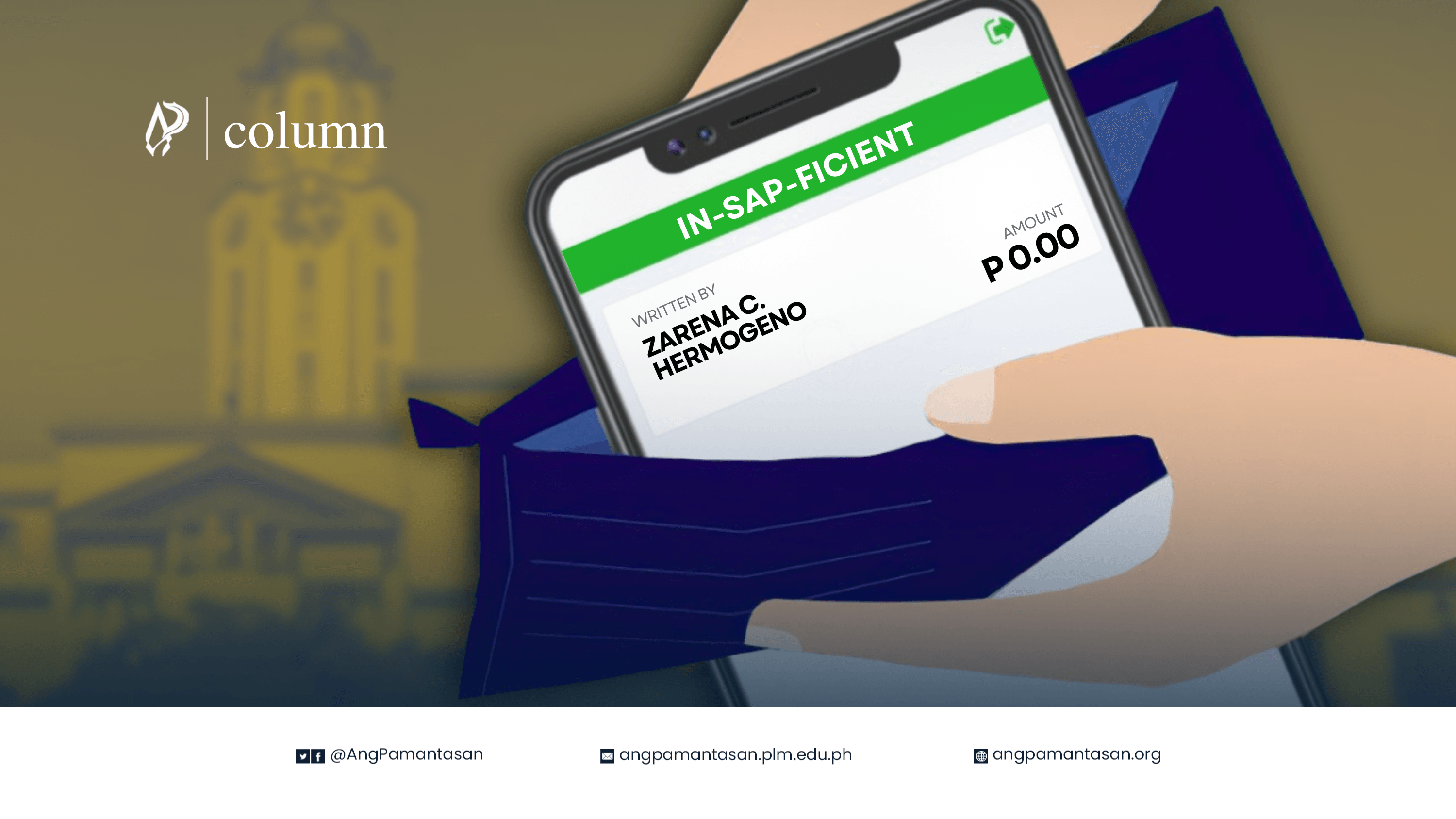In-SAP-ficient
Written by Zarena C. Hermogeno • Board by Joseph Andrei Torres | 13 December 23
Students of Pamantasan ng Lungsod ng Maynila (PLM) are now overjoyed after the recent release of the supposed monthly Social Amelioration Program (SAP) allowance, they’ve waited months to arrive. As the bountiful Christmas season inches closer to these SAP recipients, for other students in the Pamantasan, it's just another holiday to pass.
PLM, along with the Universidad de Manila, is among the two recognized public higher institutions for residents in the City of Manila. Since its approval 5 years ago, both undergraduates of PLM and UDM receive 1,000 Php monthly cash allowance (better known as SAP) under City Ordinance No. 8568 to ease their financial constraints.
Aside from being known as a production factory of licensure exam topnotchers and a highly-esteemed medical school, the SAP allowance is another hook for aspiring haribons.
Besides, what more could you ask for? Pursuing your tertiary education for free and being paid subsequently in doing so is every financially-challenged student’s dream.
And just like any other dreams one may have, not all of it do come true.
As stated in Sec. 5 of the ordinance, only those students who are bonafide residents and registered voters of Manila are qualified for the cash allowance.
At plainsight, this seems to be reasonable, the university’s name is “Pamantasan ng Lungsod ng Maynila” (University of the City of Manila) after all, of course it targets Manila residents.
However, viewing this angle also places students who are non-Manila residents on its periphery.
In retrospect, PLM owns up to its moniker being the “People’s University”. Throughout the years of admissions, Manila’s premiere university also takes in students who reside or come from schools outside the city. Based on recent (available) statistics from the 2021 PLM Admissions Test (PLMAT) results, 35% of the total passers are non-Manilans. A year prior to that, 1,700 students comprised the 5,000 first-year students to be admitted for the academic year 2020-2021.
Though such a miniscule number compared to the university’s population, they should not be treated as a minority. Every student should at least reap the same equitable benefits.
It is because of the reason that each student has their own life to bear with and academic burdens to tread. One should not assume that a non-Manila resident who chose to study in the Pamantasan, despite the free tuition, can actually afford to study.
Personally, I know friends and colleagues who shell out hundreds of pesos each day just to attend an hour of lecture or a minutes-worth of group meeting.There are also those who are in the middle of their 3-hour trip, only for their professor to cancel that single class for the day. And let’s not forget about the students in those courses who allot more than they could budget for transportation to routinely purchase supplies for academic purposes.
These concerns are just the tip of the iceberg but are enough to prove how committed students are in their studies, but with financial struggles, they are burdened further.
The Preamble of City Ordinance No. 8568 mentioned that “there is a need to support the youth of the City of Manila intellectually by providing allowances to its public school students to allow them to continue their education despite the hardships and struggles of the family;” But what happens to students who are not targeted by this ordinance?
The non-inclusion of students of PLM who are non-Manila residents to the SAP cash allowance is equivalent to alienating these students who come from far and wide just to attain the quality education and support they know that the City of Manila could only provide. These students could opt to study in their own residential cities but chose to study and, for some, bring pride to the Pamantasan and the city it renders its service for.
Including the students of PLM who are non-Manila residents to the SAP allowance would not mean less compared to those bonafide Manila residents, rather it could foster a more breathable environment for financially-stricken students outside the city that could help them learn comfortably. And through this initiative the Pamantasan could optimize its vision in being the university for the people regardless from which city its students come from.
